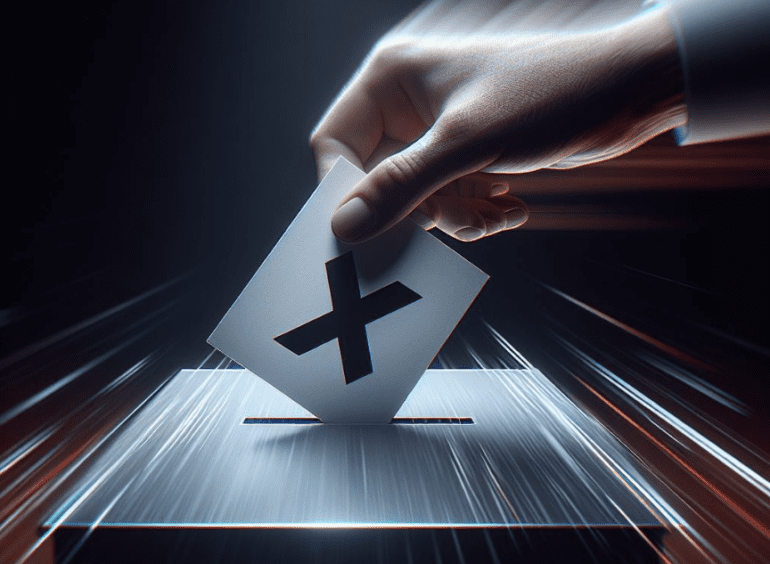TL;DR:
- OpenAI is dedicated to safeguarding the integrity of the 2024 global elections.
- They focus on preventing misuse of AI tools, particularly during elections, by addressing deepfakes and misinformation.
- Transparency initiatives include digital credentials for image provenance and integrating ChatGPT with real-time news.
- OpenAI partners with authoritative sources like the National Association of Secretaries of State (NASS) to provide accurate voting information.
- The organization aims to ensure AI technologies enhance, rather than undermine, democratic processes.
Main AI News:
As the world prepares for a series of significant elections in 2024, OpenAI is taking proactive steps to safeguard the integrity of these democratic processes. OpenAI acknowledges the importance of protecting the democratic principles that underpin free and fair elections, and it is committed to ensuring that its advanced AI technology is not misused to undermine these crucial events.
OpenAI’s mission has always been centered on empowering individuals and improving lives through AI-driven solutions. From enhancing state services to simplifying medical forms for patients, the organization’s tools have the potential to drive positive change. However, with great power comes great responsibility, and OpenAI is dedicated to building, deploying, and using its AI systems safely.
The organization recognizes that AI technologies, while offering numerous benefits, also present certain challenges. OpenAI is committed to continuously evolving its approach as it gains insights into how its tools are being used. In preparation for the 2024 elections in some of the world’s largest democracies, OpenAI is focusing on three key pillars: preventing abuse, enhancing transparency, and improving access to authoritative voting information.
Preventing Abuse
OpenAI is actively working to prevent the abuse of its AI tools during election periods. This includes addressing concerns such as misleading “deepfakes,” scaled influence operations, and chatbots impersonating candidates. Before releasing new systems, OpenAI conducts red teaming exercises, engages users and external partners for feedback, and implements safety mitigations to reduce potential harm. The organization has been iterating on tools to improve factual accuracy, reduce bias, and decline certain requests. For example, DALL•E has guardrails in place to decline requests for image generation of real people, including candidates.
OpenAI regularly refines its Usage Policies to adapt to evolving challenges. For elections, specific policies are designed to prevent personalized persuasion, disallow chatbots from impersonating real people or institutions, and prohibit applications that discourage voting or misrepresent voting processes.
Transparency around AI-Generated Content
OpenAI believes that transparency is essential in ensuring the integrity of AI-generated content, particularly images. The organization is working on improving transparency around image provenance, allowing voters to assess images with trust and confidence. OpenAI is implementing the Coalition for Content Provenance and Authenticity’s digital credentials, which encode details about an image’s provenance using cryptography. They are also experimenting with a provenance classifier to detect images generated by DALL•E, making it available to testers, including journalists, platforms, and researchers for feedback.
Furthermore, ChatGPT is integrating with real-time news reporting globally, providing users with access to information along with attribution and links. This transparency in the origin of information and balance in news sources can help voters make informed decisions.
Improving Access to Authoritative Voting Information
In the United States, OpenAI is collaborating with the National Association of Secretaries of State (NASS) to ensure that ChatGPT directs users to CanIVote.org, the authoritative source for US voting information, when asked procedural election-related questions. The lessons learned from this partnership will inform OpenAI’s approach in other countries and regions.
As the 2024 elections approach, OpenAI remains committed to working with partners to prevent potential misuse of its AI tools. The organization looks forward to sharing more updates in the coming months as it continues its mission to protect the integrity of elections worldwide.
Conclusion:
OpenAI’s proactive approach to election integrity signifies a commitment to responsible AI usage, transparency, and collaboration. This demonstrates a growing emphasis on ethical AI deployment in the market, emphasizing the need for businesses to consider the broader societal impact of their technologies and engage in partnerships to uphold democratic values.

